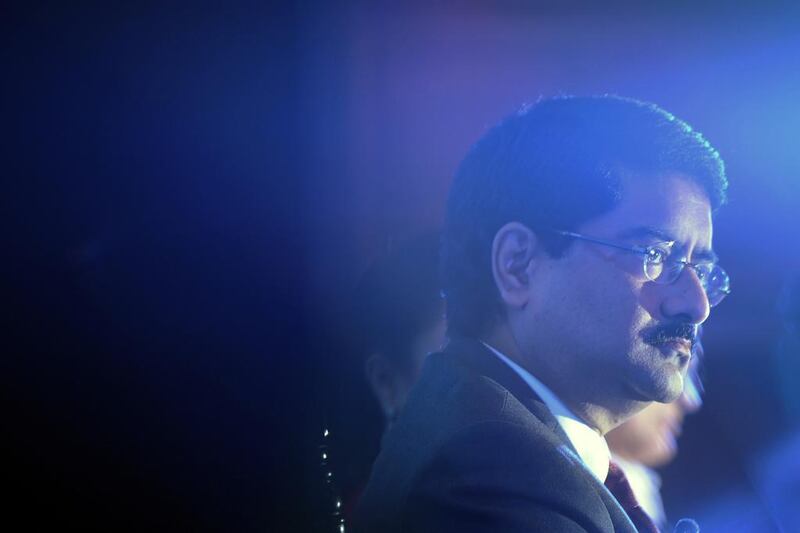NEW DELHI // Investigators have accused one of India’s leading industrialists of “criminal conspiracy” in a vast corruption scandal that threatens to tarnish Prime Minister Manmohan Singh.
The scandal, dubbed “Coalgate,” concerns corruption and favouritism in the government’s allocation of coal-mining rights between 2004 and 2009, at a time when Mr Singh controlled the coal ministry.
The Central Bureau of Investigation (CBI) has been probing the corruption charges for more than a year. According to a report released by India’s auditor-general last year, the corruption resulted in undue benefits to the favoured companies, totalling as much as US$28 billion (Dh103bn).
Kumar Mangalam Birla, chairman of the 156-year-old Aditya Birla Group, a conglomerate with diverse interests including metals and minerals, was named in a CBI report filed on Tuesday, sending shock waves through India’s corporate world.
The CBI has accused Hindalco, one of Mr Birla’s companies, of wrongfully acquiring coal mining rights in the state of Odisha in 2005.
That particular block of coal deposits was originally allocated to state-owned companies. But after Mr Birla met with PC Parakh, a senior coal ministry bureaucrat, in 2005, Hindalco was suddenly awarded mining rights as well.
Mr Parakh, who retired soon after, was named as an accused on the same charges in the CBI’s report as well, even though he had himself sounded warnings about corruption and was hailed as a whistle-blower. In a television interview yesterday, Mr Parakh insisted that he was not responsible for any discrepancies and that Mr Singh, as the coal minister, was as involved in the decision as anyone.
“If the CBI thinks there is a conspiracy, then why did they choose and select Mr Birla and me and why not Mr Singh?” Mr Parakh wondered.
Through Hindalco, Mr Birla has denied any improprieties in the 2005 allocation of mining rights.
“This seems to be part of a larger case entailing coal allocation to companies, and being one of the companies, we are being investigated also,” a statement from Hindalco said on Tuesday. “We wish to state unambiguously that we have followed every process required for allocation of coal completely, as stipulated by the government policy.”
Hindalco’s shares dropped more than 4 per cent in value on Tuesday, the day the CBI’s report was filed.
Mr Birla, whose conglomerate works in 33 countries and registered revenues of nearly US$40bn in last year, has become the second high-profile industrialist to become enmeshed in Coalgate.
Naveen Jindal, a steel magnate and a member of parliament, has also been questioned over his company’s acquisition of mining rights in the state of Jharkhand.
Several corporate leaders have come out in support of Mr Birla, who has always enjoyed a reputation of being a fair and respectable businessman.
Deepak Parekh, chairman of HDFC, India’s largest mortgage firm, told the Economic Times newspaper yesterday that Mr Birla “is straight as an arrow”. TV Mohandas Pai, a former board member of the software giant Infosys, said that the CBI seemed to be accusing people without “strong direct evidence.” He warned that investors would begin to rethink investments in India if investigators and prosecutors were willing to move against companies on tenuous grounds.
Mohit Satyanand, a Delhi-based investment analyst, said he believed Mr Birla to be essentially honest. “There are businessmen in India with whom I would never do a deal. But I would absolutely do a deal with him.”
The current government, he said, had made it impossible to do business without collusion and payoffs. Mr Birla’s companies have responded to this, in part, by choosing to invest overseas in recent years, instead of in India.
“But if you’re sitting on existing investments in India, like an aluminium plant, then it’s difficult to just walk away from them,” Mr Satyanand said. “It’s the kind of situation where even somebody like Kumar Mangalam Birla can feel forced to pay bribes to get things done.”
SSubramanian@thenational.ae





